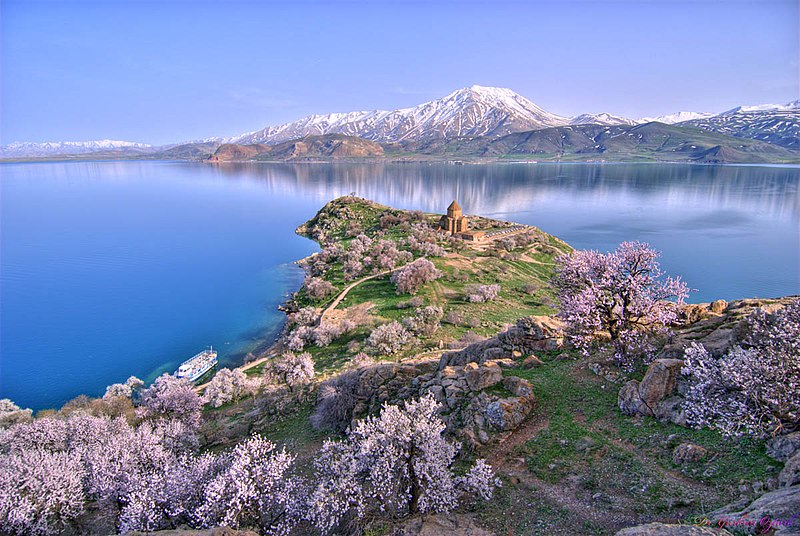KANADA: Calgary Herald’da yayinlanan “Talking Turkey about Armenian genocide” baslikli yaziya cevaben CTC’nin editor’e gonderdigi mektubu asagida gorebilirsiniz.
Banu
RE: Talking Turkey about the Armenian Genocide, Tim Gannuzzi, Column, March 18, 2010
While Tim Gannuzzi is certainly entitled to his own opinion, he is not entitled to his own facts (“Talking Turkey about the Armenian Genocide” March 18, 2010). Turkey has no intention of making “everyone forget” about its history – neither its good nor its bad. There is no debate that hundreds of thousands of Armenians fell victim to war time chaos and widespread violence during the dying days of the Ottoman Empire. However, to claim that this was an organized attempt at mass extermination is to play fast and loose with the facts. It is not just Turkey’s government that objects to this label. The ‘genocide’ label is also rejected by respected Western scholars such as Professor Bernard Lewis, who teaches history at Princeton University and was the recipient of the National Humanities Medal in 2006. Contrary to what Gannuzzi takes as uncontested truth, there is a legitimate scholarly debate around this matter.
Mr. Gannuzzi’s understanding of the facts is not only limited when it comes to history. While he may think that Canada and Turkey compete for market share in the international oil market, he demonstrates a poor geopolitical understanding of the dynamics around Turkey, including the energy sector. Regardless of Turkey’s geostrategic importance, claims of genocide is a serious matter of legal and moral nature which requires a language of knowledge, not armchair conjectures. Turks reject being accused of a crime which they believe, on the basis of information available, they have not committed. Even in the 20 Parliaments where the Armenian ethnic lobbying proved successful, significant numbers of parliaments voted against pro-Armenian bills in any bills. In any case, are we to write history according to how parliaments vote? Who needs historians then? Are we to leave crimes to be ascertained in parliaments, rather than courts?
Curiously, Mr. Gannuzzi’s article fails to point out that Turkey and Armenia have made serious steps towards reconciliation and normalization of their relationship. Last year, both countries agreed to set up a historic commission to address the issue of Armenian-Turkish relations during World War I – this includes the opening of Turkish and Armenian archives. Canada could play a vital role in providing support towards reconciliation between Turkey and Armenia. Reproducing a one-sided narrative and disregarding legitimate concerns, on the other hand, is not helpful at all.
Best regards,
Kevser Korhan
President, Council of Turkish Canadians
2706 Alta Vista Drive, Suite 801
Ottawa, ON
K1V 7T4
=========================================================
It was chaos, but not genocide
Read more:
Pro-Turkish protesters wave Turkish flags during a demonstration in Stockholm on Sunday against the decision by Sweden’s parliament to call the killing of Armenians under Ottoman rule during the First World War genocide. Reader says Turks are tired of being accused of a crime they didn’t commit.
Photograph by: Henrik Montgomery, AFP-Getty Images, Calgary Herald
Re: “Talking Turkey about the Armenian genocide,” Tim Giannuzzi, Opinion, March 18.
Turkey has no intention of making “everyone forget” about its history. There is no debate that hundreds of thousands of Armenians fell victim to wartime chaos and widespread violence during the dying days of the Ottoman Empire. To claim that this was an organized attempt at mass extermination is to play fast and loose with the facts. It is not just Turkey’s government that objects to the genocide label; it is also rejected by respected western scholars such as Bernard Lewis, who teaches history at Princeton University and was the recipient of the 2006 National Humanities Medal.
There is a legitimate scholarly debate around this matter. Turks reject being accused of a crime which they believe, on the basis of information available, they have not committed.
Even in the 20 parliaments where the Armenian ethnic lobbying proved successful, significant numbers of parliaments voted against pro-Armenian bills. Are we to write history according to how parliaments vote? Who needs historians then? Are we to leave crimes to be ascertained in parliaments, rather than courts?
Tim Giannuzzi fails to point out that Turkey and Armenia have made serious steps toward reconciliation and normalization of their relationship.
Last year, both countries agreed to set up a commission to address Armenian-Turkish relations during the First World War; this includes the opening of Turkish and Armenian archives. Canada could play a vital role in providing support toward reconciliation between Turkey and Armenia.
Kevser Korhan,
Ottawa
Kevser Korhan is president of the Council of Turkish Canadians


Leave a Reply